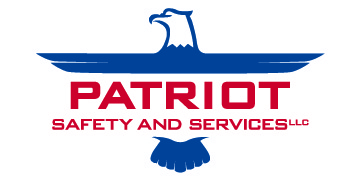Background Checks as a Strategic Tool in Long-Term Workforce Planning
Why Background Checks Support Smart, Sustainable Hiring
Building a workforce isn’t just about filling roles—it’s about shaping the future of a company. Every hire made today has implications for team performance, culture, and long-term growth. That’s why background checks are more than just a procedural step in onboarding. They’re a strategic hiring tool that helps employers make informed decisions with confidence.
Background checks provide employers with verified information about a candidate’s history. This includes criminal records, employment verification, education credentials, and in some cases, credit history or driving records. Used correctly, background checks serve as a safeguard against preventable risk and help ensure that new hires align with organizational standards and expectations.
While interviews and resumes offer insight into a candidate’s skills and personality, background checks offer context that can validate or raise questions about what’s been presented. For any employer focused on long-term retention and team integrity, background checks are an essential part of the hiring process.
Background Checks and Risk Management
Every organization faces potential risks when hiring new employees. Theft, workplace violence, fraud, and safety violations are all incidents that can originate from poor hiring decisions. Background checks give employers the ability to assess risk before an individual enters the workplace.
By reviewing criminal history, driving records, and past employment, background checks help employers identify red flags that may otherwise go unnoticed. These insights help protect not only business assets, but also the physical and psychological safety of existing employees and customers.
Background checks also reduce the likelihood of negligent hiring claims. If an employee causes harm in the workplace and the employer failed to conduct reasonable screening, legal liability can follow. By incorporating background checks into standard hiring procedures, companies can demonstrate that they took appropriate steps to evaluate each candidate’s suitability for the role.
Industry-Specific Demands for Background Checks
The need for background checks varies by industry, but their importance is consistent. In healthcare, childcare, and education, background checks are often mandated by law. In transportation and logistics, background checks support Department of Transportation (DOT) requirements and help maintain commercial licensure and insurance eligibility.
For companies in construction or contracting, background checks are frequently required by clients, especially when crews will be working on private property or government-funded projects. Even in office settings, background checks help protect sensitive information, company finances, and internal systems.
Employers in regulated industries often use background checks to meet state and federal compliance standards. In non-regulated industries, background checks are still widely used to support company policies, reduce liability, and protect brand reputation.
Using Background Checks to Promote Workplace Integrity
One of the less discussed benefits of background checks is their role in building a culture of integrity. When employees know that background checks are part of the hiring process, they understand that the company values professionalism, trust, and transparency.
This standard reinforces expectations from the beginning. Employees who pass background checks enter the organization with the understanding that honesty and responsibility are core values. It also assures existing staff that leadership is committed to maintaining a safe and accountable environment.
Background checks also level the playing field. When used consistently across all candidates for the same role, background checks reduce bias and subjectivity. Everyone is evaluated using the same criteria, which strengthens both hiring fairness and team morale.
Legal Considerations in Background Checks
While background checks are an important tool, they must be conducted legally and ethically. Employers are required to follow the Fair Credit Reporting Act (FCRA), which outlines how background checks must be initiated, documented, and shared.
Under the FCRA, employers must obtain written consent from the candidate before conducting a background check. If adverse information is found, the employer must notify the candidate, provide a copy of the report, and offer an opportunity for dispute or explanation before making a final hiring decision.
Employers must also be aware of guidance from the Equal Employment Opportunity Commission (EEOC), which cautions against blanket exclusions based on criminal history. Instead, the nature of the offense, its relevance to the job, and the time elapsed since the event must be considered.
Consistent documentation, transparency, and fair application of criteria are all key to ensuring that background checks are compliant and defensible in the event of a dispute.
Supporting the Candidate Experience During Background Checks
Background checks can feel intimidating for candidates, especially if they’ve never been through one before. It’s important for employers to communicate clearly about what to expect and to reassure candidates that background checks are part of standard procedure—not a sign of mistrust.
By explaining the process upfront, outlining the types of information being reviewed, and offering a point of contact for questions, employers can maintain a positive candidate experience while still performing necessary due diligence.
When handled properly, background checks actually strengthen the employer-employee relationship. Candidates who are treated with respect during the hiring process are more likely to trust the company, feel confident in their onboarding experience, and start the job with a sense of mutual respect.
Background Checks in the Age of Remote Work
Remote and hybrid work have changed the hiring landscape, with many companies expanding their recruiting efforts nationwide. As more roles shift away from centralized office environments, background checks become even more important.
For remote roles, background checks help verify identity, location, and previous employment in areas that employers may not be familiar with. They also provide insight into how a candidate may handle confidential data, company equipment, or independent work responsibilities.
Background checks for remote employees are conducted using the same secure and compliant processes used for on-site staff. However, additional attention may be paid to identity verification and location-specific laws. Employers must ensure that their background check policies cover both in-person and remote hires equally.
Why Patriot Safety and Services Is a Trusted Background Check Partner
Patriot Safety and Services provides comprehensive, compliant, and scalable background check services to employers across a range of industries. Our team understands that every organization has unique screening needs, and we tailor our services to fit your company size, risk tolerance, and compliance requirements.
Our background checks include:
- Multi-jurisdictional criminal history searches
- Social Security number verification
- Employment and education history verification
- Motor vehicle record checks (MVRs) for driving roles
- Optional credit checks where legally permissible
- Integration with pre-employment drug testing and DOT compliance services
We help clients build consistent, legally sound screening processes that can be applied across departments and job types. We also offer support with documentation, dispute resolution, and audit preparation to ensure that every background check adds value to your hiring process.
Building a Stronger Organization Through Background Checks
When used thoughtfully, background checks do more than identify red flags—they help organizations build smarter, safer, and more cohesive teams. They ensure that new hires meet both skill and character expectations, reduce the risk of costly incidents, and provide peace of mind for managers and stakeholders alike.
Background checks also contribute to the long-term health of a business. They support retention by ensuring cultural alignment, reduce legal exposure by confirming due diligence, and promote a workplace environment where trust is a shared value.
With the right partner and a consistent process, background checks become a vital part of workforce development—not just a gatekeeping step. Patriot Safety and Services helps employers implement screening solutions that support compliance today and growth tomorrow.


